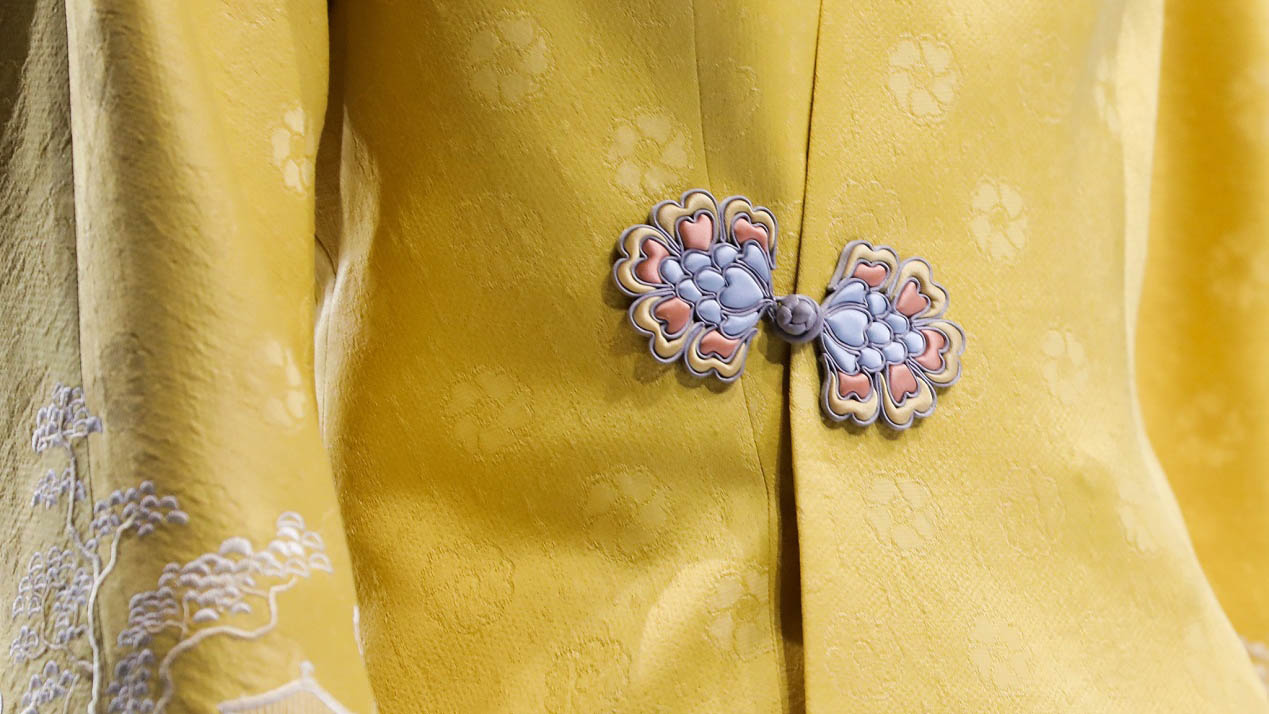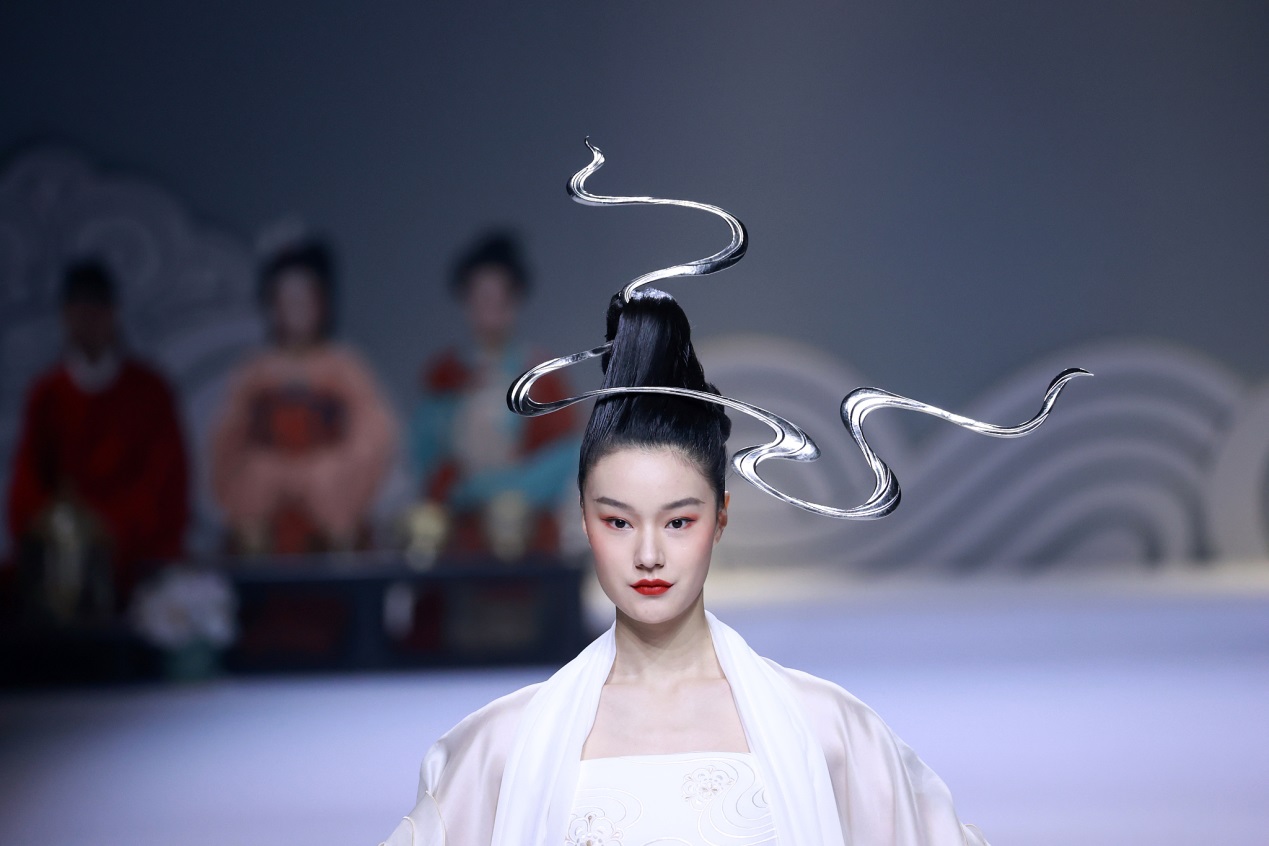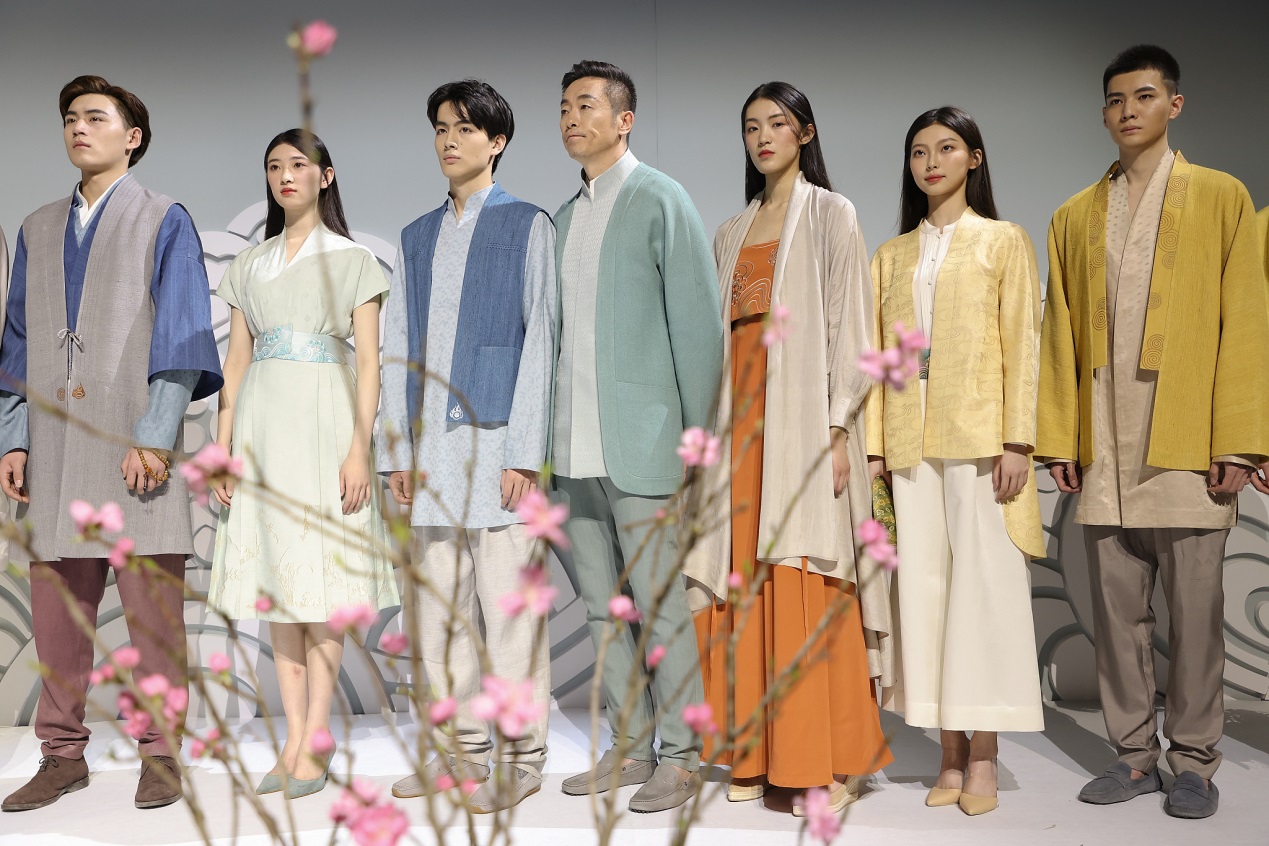03:20

The Beijing Institute of Fashion Technology (BIFT), one of China's top education facilities in the sector, has cultivated scores of homegrown designers dedicated to reviving traditional clothing in modern-day China. One of them is Chu Yan, founder of Chuhetingxiang and associate professor at the institute. Over the weekend, Chu unveiled her latest collection at the 2021 China Fashion Week Autumn/Winter edition.
Inspired by the traditional tea ceremony, the designer is putting a modern twist on traditional attire, fit for everyday wear.

Models present Chu Yan's latest collection at China Fashion Week AW 2021. /CFP
Models present Chu Yan's latest collection at China Fashion Week AW 2021. /CFP
The designer told CGTN that for the past ten years, Chuhetingxiang has been striving to interpret traditional Eastern aesthetics in modern designs, in terms of techniques and choice of fabric, from styling to methods of wearing the garment.
"The Tea collection is quite wearable in everyday life. Our aim is to find a way to translate the beauty of traditional clothing in our daily life, instead of it just being confined to special occasions or on the runway," she said.
As to what prompted her to put traditional clothing in a modern context in the first place, Chu said her education at the Beijing Institute of Fashion Technology plays a significant role.

Models present Chu Yan's latest collection at China Fashion Week AW 2021. /CFP
Models present Chu Yan's latest collection at China Fashion Week AW 2021. /CFP
"BIFT is probably the one fashion institute in China that has done the most in preserving and inheriting traditional Chinese clothing," Chu told CGTN, adding that she believes in digging deep into China's rich and profound cultural traditions to explore the different possibilities of traditional clothing to share with the public.
As to her aesthetics, Chu quoted an ancient saying, "Just like when salt dissolves in water, you can taste it, but you can't see it.”
For her, the Chinese way of expressing beauty is quite implicit. It's more metaphysical; it's a spiritual pursuit.

